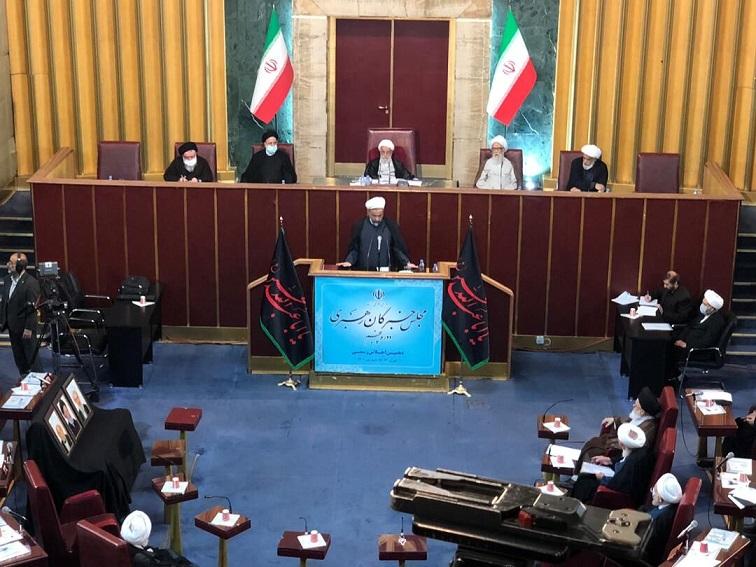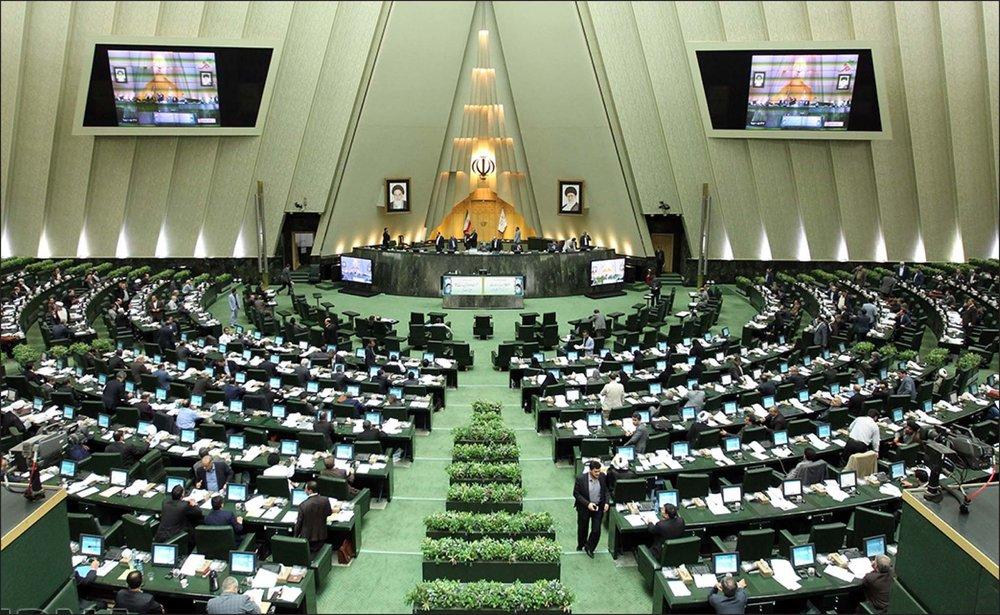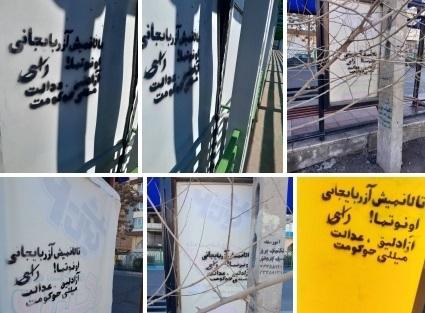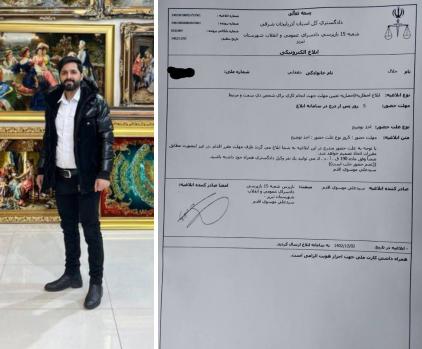Unpacking ethnic tensions ahead of Iran's parliamentary elections Azerbaijanis' discontent simmers
As Iran gears up for the March 1, 2024, parliamentary elections, the political landscape is fraught with complexities and uncertainties amid heightened international scrutiny and pressure, particularly over Tehran’s nuclear program and negative regional influence.
Tensions with Western powers, especially the United States and Israel, loom large, impacting domestic politics and voter sentiment.
Iran's election melting pot
Amidst escalating tensions with the international community over the theocratic regime’s alleged adverse impacts on its proxies in the wider region, internal power struggles, and economic challenges, coupled with demands of the ethnicities for more rights, just to mention a few, the upcoming elections serve as a crucial juncture for the trajectory of the nation, ruled by the theocratic regime with an iron fist since 1979.
On March 1, voting for the Assembly of Experts, a purely religious entity, will also take place, which constitutionally has the power to appoint the Supreme Leader - the regime's highest authority and monitor its performance. Since its establishment, the Islamic Republic has conducted nearly 40 elections, viewing the procedure as a testament to its legitimacy.

As with nearly all prior elections, both domestic, international political, and economic situations along with public demands for reforms, play a significant role in influencing the lead-up, the balance of power, the voting procedure, and the aftermath.
This year's elections coincide with one of the most tumultuous times in the Middle East's contemporary history, putting the Iranian regime in an increasingly difficult position over the diverse interests of multiple domestic actors, the grassroots, and the rulers of the theocratic regime.
The aftereffects of the Gaza war and Red Sea conflicts, along with domestic political and economic challenges in concert with increasing discontent of major ethnic groups, are among the major considerations in the upcoming polls.
Substantially, Iran’s forthcoming elections will be the first since the upheaval in 2022, a chaotic development that exposed the deep-seated divisions between the governing theocracy and the jaded electorate.
The state, with its ceaseless suppression of the opposition, capital punishment of detained demonstrators, and the ongoing stalemate over the unresolved hijab issue, seems to be grappling with an unprecedented challenge in its endeavor to mobilize voters for the poll
The Majlis, composed of 290 members, are chosen quadrennially to represent 208 constituencies across the nation. The Assembly of Experts follows an eight-year election cycle. The most recent UN estimate puts the Iranian population at approximately 89m. Given the minimum voting age of 18, an estimated 60m individuals are anticipated to be eligible to vote. Of the approximately 24,000 candidates, 12,033 have successfully navigated the stringent screening process and entered the race.

On February 20, the Guardian Council, the vetting body responsible for approving candidates, delivered its conclusive verdict on individual nominees following the closure of all appeal requests. On February 21, the Interior Ministry announced the formal campaign period from February 22 until 28.
Azerbaijanis' discontent simmers
The ethnic Azerbaijanis in Iran find themselves at the center of a brewing storm of discontent as the regime is preparing for the March 1 parliamentary elections to gain credibility in the eyes of disgruntled Iranians to continue provocative behavior patterns vis-à-vis regional nations.
Long-standing grievances, ranging from cultural marginalization to political underrepresentation, have fuelled simmering tensions within Azerbaijanis, spotlighting broader challenges of ethnic diversity and inclusion in Iran's political landscape.
Azerbaijanis, who comprise a significant portion of Iran's population, have historically faced discrimination and marginalization, with their cultural and linguistic rights permanently overlooked by the central government. Despite being one of Iran's largest ethnic minorities and a titular nation, Azerbaijani representation in key political institutions remains disproportionately low, exacerbating feelings of disenfranchisement and frustration.
Ahead of the parliamentary polls, Azerbaijani activists and organizations have mobilized to voice their demands for greater recognition and representation. Calls for increased cultural autonomy, equitable resource allocation, and enhanced political participation resonate within the nation’s major group, underscoring the urgency of addressing long-standing grievances.
Against a backdrop of broader socio-political unrest and economic challenges gripping Iran, the Azerbaijani community's discontent adds a potent dimension to the pre-election landscape. As Iran navigates complex internal dynamics and external pressures, the inclusion and empowerment of its diverse ethnic groups emerge as crucial imperatives for fostering social cohesion and political stability.

Ahead of the polls, the main demand of Azerbaijanis remains unaltered with political activists calling voters to boycott the elections as they believe this will not change anything but extend the regime’s grip on power.
The Azerbaijan national movement chiefly champions the cause of "freedom, justice, and national governance," echoing through the streets of Tabriz with the slogan "no vote" on the walls.
This is a call to action for ethnic Azerbaijanis, urging them to refrain from participating in the impending elections. Coupled with these principal demands, the graffiti also serves as a reminder of the ravaged state of Azerbaijanis, with the message "let's not forget the looted Azerbaijan!"
It's worth mentioning that the Iranian government is intensifying its assimilation policies against non-Persian communities, with a particular focus on Southern Azerbaijan and this encompasses political, economic, social, and cultural dimensions.
The Azerbaijani national movement's demands have evolved from advocating for education solely in the Azerbaijani language to calling for "freedom, justice, and national government". This is an attempt to break free from the government's ongoing segregated electoral practices.
As events continue to unfold, reports persistently circulate regarding the apprehension of national activists in Southern Azerbaijan, as well as their subsequent summonses to local courts and intelligence agency bureaux.
These tactics appear to be an attempt to instill fear and control. Notably, national activist Jalal Dehghani was summoned to the prosecutor's office by the Iranian judiciary on International Mother Language Day on February 21.

The directive stipulated that Dehghani had to present himself to the 15th Investigation Department of the Tabriz District General Prosecutor's Office within a five-day window. Consequently, the designated day of his appearance was on February 21. It's worth noting that Dehghani, along with 14 other activists, was arrested on July 16, 2022, amid protests against the desiccation of Lake Urmiya. At the time, he was actively advocating for the rights of Southern Azerbaijanis.
Conclusion
The call for a boycott among Iran's ethnic Azerbaijani community ahead of the March 1 elections underscores deep-seated grievances and frustrations within the minority group. Despite being one of Iran's largest ethnic minorities, Azerbaijani voices have often been marginalized within the political sphere, leading to feelings of disenfranchisement and alienation. The decision by pro-independent groups to boycott the elections reflects a broader demand for greater recognition, representation, and autonomy.
However, the boycott's efficiency in achieving tangible change remains obscure, given the entrenched power dynamics and limitations within Iran's political system. While the boycott may serve as a symbolic gesture of protest, its impact on influencing policy outcomes or addressing systemic issues is likely limited.
Moving forward, addressing the underlying grievances of Iran's ethnic Azerbaijani population requires a comprehensive approach that prioritizes inclusivity, cultural recognition, and equitable political representation. Meaningful dialogue, reforms, and efforts to bridge divides between ethnic communities are essential for fostering social cohesion and forming the largest ethnic group's local institutions.
As Iran grapples with internal challenges and external pressures, the plight of its ethnic minorities, including Azerbaijanis, serves as a poignant reminder of the importance of upholding diversity, inclusivity, and respect for human rights within the fabric of the nation's identity and governance.








